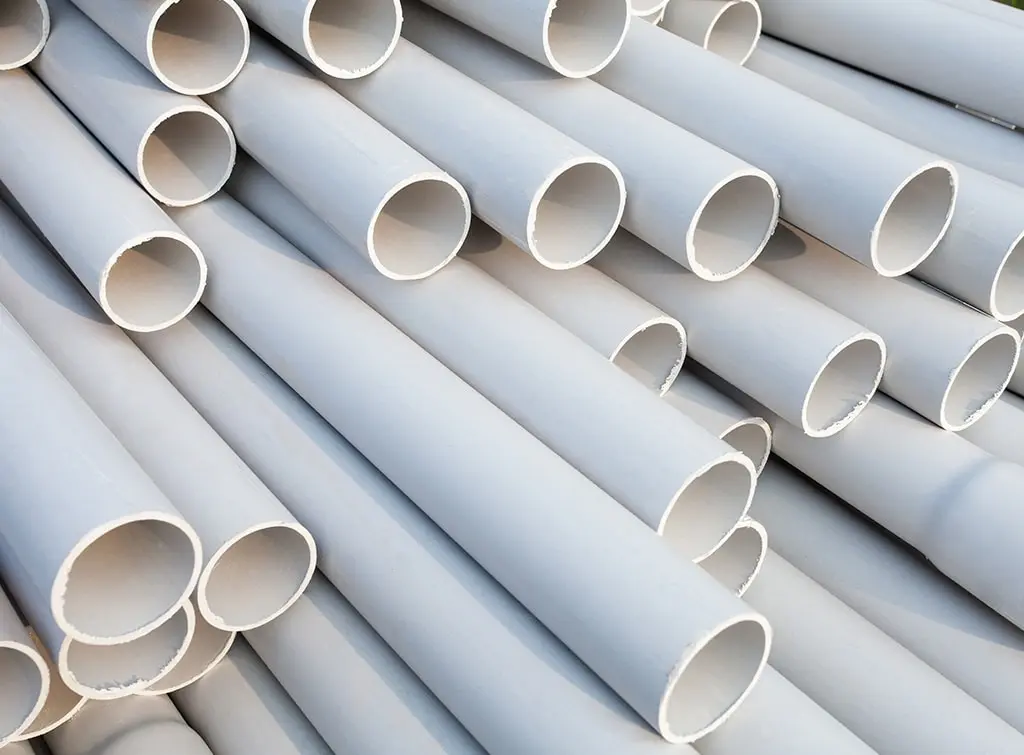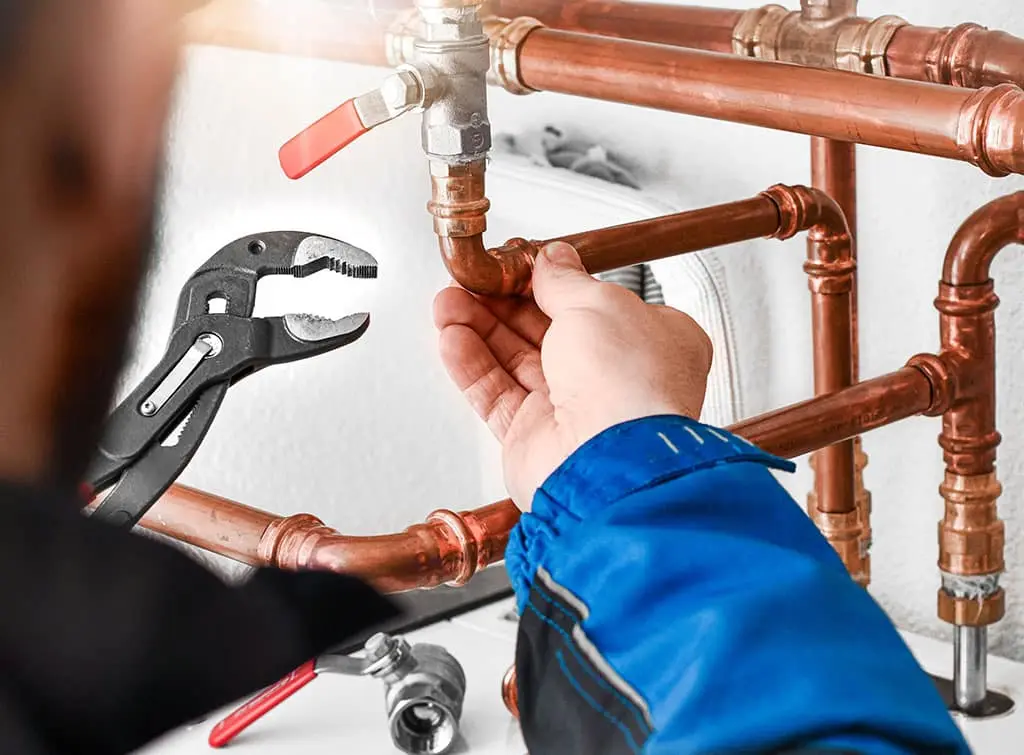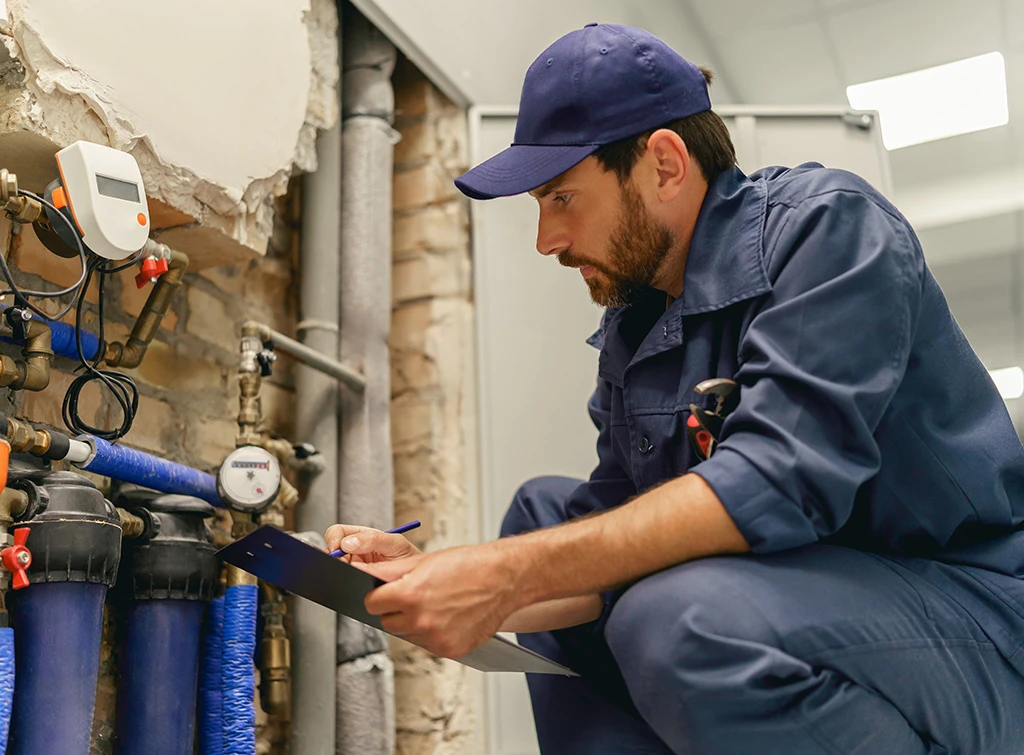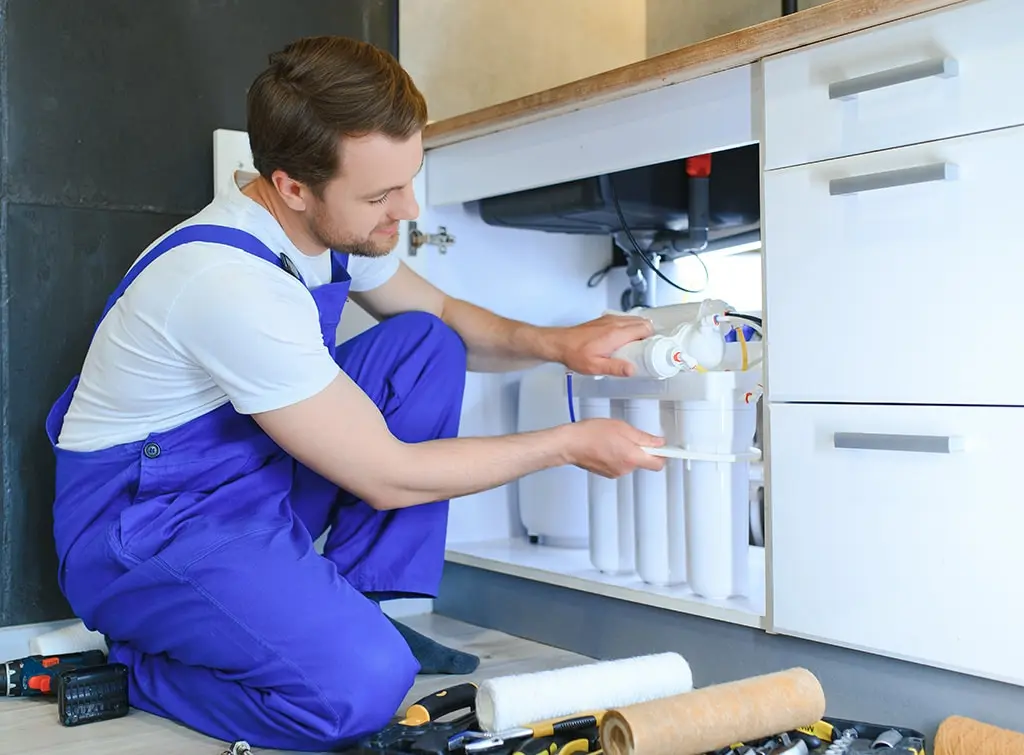Blog>Trade>Growing your trade business>Copper vs plastic pipes: Which is better?
Last updated: 5 April 2024
Copper vs plastic pipes: Which is better?
Ever since plastic piping was introduced, one question has been dividing the plumbing community. Is this material better than traditional copper piping? As you’ll see it’s not a simple yes or no question. Read on to learn just what the advantages and disadvantages of each pipe type are.

Deciding between plastic vs copper pipes
Even if you’ve only just entered the plumbing trade, you’re probably familiar with this question. Copper vs plastic pipes – which do you choose? It’s a valid question, as plastic piping has risen in popularity for a reason.
Offering quick installation and cheap prices, plastic is becoming the go-to material for many plumbers starting their own plumbing business. Not only is it helping them save on overheads, but it means they can make more per job.
However, despite plastic’s growing popularity, many reputable plumbers still swear by copper piping. After all, it’s been used for centuries without issue, so why change now? It’s durable and long-lasting, and it looks great.
As you can see, there’s a lot to consider with plastic vs copper plumbing than you might think. That’s why we’ve broken down the pros and cons of both to help make this decision easier for you.

What are the advantages of copper piping?
Starting with traditional piping when choosing plastic plumbing vs copper, why stick with this tried-and-true material?
Below are the key advantages that copper piping has over its plastic counterpart:
Despite being metal, copper is often far more flexible in how it can be installed compared to plastic
Copper is infinitely recyclable making it incredibly environmentally friendly
Thanks to the nature of copper piping, it can be installed in much smaller spaces without issue
Copper is naturally occurring so it’s an easy material to source
Due to being entirely metal, copper piping presents no risk from added chemicals
Copper piping is healthier than plastic thanks to being naturally anti-microbial
Copper is heat-resistant and won’t melt under pressure
Finally, copper piping is just that much nicer to look at from an aesthetic perspective
Grow your business
We're the UK's top online directory for people's trade needs
What are the disadvantages of copper piping?
Sadly, as much as there is to like about copper piping, there are certainly comes with several downsides.
Below are the key disadvantages of copper piping to be aware of:
Copper pipes need to be soldered upon installation rather than screwed together, meaning they require a higher skill level to install
Copper pipes are far noisier than plastic pipes, especially when used with high-pressure water systems
Copper pipes are more expensive to make and buy
Due to their more complex installation method, copper pipes take longer to install overall
Unless insulated and protected properly, copper pipes can freeze and erode over time

What are the advantages of plastic piping?
Now that we’ve looked at copper, what are the advantages of plastic when it comes to plastic or copper pipes?
Below are the core advantages of using plastic piping over copper:
Plastic is more durable when it comes to erosion, meaning it doesn’t corrode
Piping of this kind is much easier and quicker to install than copper piping
Plastic piping is much cheaper to buy
Due to new construction methods, plastic piping is also much quieter than copper
Plastic piping is also thicker, meaning it’s less likely to freeze
What are the disadvantages of plastic piping?
However, as we’ve seen with copper, plastic piping comes with its own disadvantages to keep an eye on.
Below are the main disadvantages that come with using plastic piping:
Plastic piping is far less flexible at the joints than copper, making complex piping patterns harder to install
Plastic can be very rigid, which could cause pipes to crack
Due to its bulkier nature, plastic is not suited for use in tight spaces
Certain plastics, specifically PVC, can warp at high-temperature, making them unsuitable for use with hot water
PEX plastic piping can’t be connected directly to a water heater, requiring a length of copper piping to connect to
Plastic is not recyclable
Save money with Checkatrade
All of our partners can get great discounts on tools and materials
Plastic vs copper pipes: Where should they be used?
So, now that you know the pros and cons of each pipe type, when and where should you use them?
For copper piping, this sort of material is best installed in the following spaces:
Older homes that have antiquated piping systems unsuitable for use with plastic piping
Homes where the owners want to keep a more traditional feel
Water systems that use high-temperature water
Buildings that have limited space for piping
Plumbing systems that require piping to go outside of the home
As for plastic, we recommend using it when presented with the following factors:
New builds and larger homes that are built with plastic piping in mind
Homes built in colder areas to avoid pipes freezing
People looking to update their central heating system on a low budget
Cold water systems that don’t supply drinking water
New plumbers just starting out that are yet to train in copper pipe installation methods

Get discounts on all plumbing materials with Checkatrade
So, now you know the pros and cons of plastic plumbing vs copper piping. Ultimately, the type of piping you use is up to you, but you might want to consider both to meet customer demands.
Of course, if pricing and cost are a concern, don’t forget that you can make great savings with Checkatrade. All of our members get discounts on tools and materials bought from our partners.
Get in touch today to learn more and don’t forget to browse our blog for more articles like this one. We have pieces on how to become a plumber, plumber salaries, and tips to grow your plumbing business.
Grow your business
We're the UK's top online directory for people's trade needs
Plastic or copper pipes FAQS
Can you mix plastic and copper plumbing?
Yes, you can absolutely mix copper and plastic piping if their manufacturers allow it. As we pointed out, PEX plastic piping requires copper pipes in order to be connected.
And by working with both, you can make your installation jobs more flexible.
Should I replace copper pipes with plastic?
Whether or not you do this is up to you and will depend on personal preference. For quieter systems, you might want to swap your copper pipes out for plastic ones. However, a full system overhaul could cost a lot.
How long do copper pipes last?
If installed correctly and made from good material, copper piping can last up to 80 years! However, most standard copper pipes will last for at least 50, which is still much longer than most plastic pipes.


